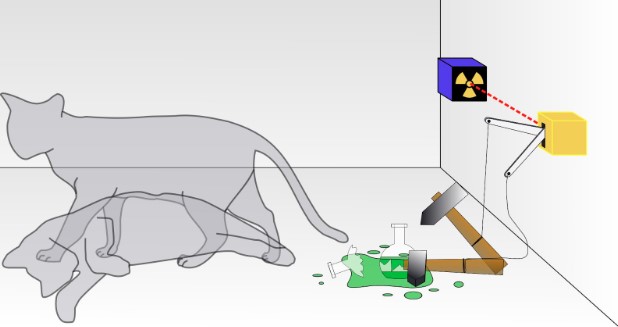Quantum Computing: The Future of Computer Technology

Quantum Computing is viewed as the technology of the future, however, its practical applications are already seen at present.
The term Quantum Computing seems very complex and vague matter to many people. However, its real-world applications are waiting to happen. And, in some cases, it would appear that in some capacity the wait is over.
Quantum techniques are already becoming noteworthy resources in the computing field. Humans are in pursuit of valuable quantum machines that can extend our reach into the unknown.
The development of Quantum Computing was also a central point of Matthias Troyer’s keynote speech at ISC (International Science Conference) 2021.
Like Troyer, a good number of scientists are also working and thinking about the development of Quantum Computing.
What is Quantum Computing?
Before understanding the details of Quantum computing, we’ve to understand the molecules of elements. If we look deep down to the level of atoms and electrons, nature behaves quantum mechanically.
This thing is described by the laws of quantum mechanics, however, these are different from what we are used to in the conventional world.
A conventional object like a phone or a ball is a particle that sits at one location. If you go deeper into the structure of the products, for instance, if you have an electron, it can be a particle when it hits an object.
But, it acts like a wave when it moves. The duality of objects and waves is explained by the laws of quantum physics.
Let’s imagine what if bits in a computer could be waves and have certain wave amplitude for being zero and one and exists in both states.
Then we can think of computations having registers of no fixed value but can exist in a wavelike superposition or exponential values.
We can use that condition to do the task of computing exponentially faster and solve problems that are conventionally intractable.
Any traditional problems, in fact, also be solved using quantum hardware. To solve this, the conventional register can be used.
But, this task will be practically non-feasible as quantum bits are much more expensive than conventional bits and the operation process would be much slower, because of the complexity of quantum computers.
However, there’s a solution to this point. If you put the quantum registers into this wave-like superposition of many values, the number of operations would be fewer.
And in this way, quantum computers can work successfully in near future.
So, what would be the advantage of Quantum Computing? Truly, you will be able to solve the number of problems on future quantum hardware in a few days what a conventional computer, even the size of the earth, would take a billion years to solve.
How Can We Implement Quantum Approaches on Traditional HPC Architecture and What Challenges May Arise?
How challenging its to implement Quantum Computing on conventional HPC architecture?
The algorithm developed for quantum computers gives us ideas for running them on a conventional computer. This is not the same for all algorithms.
If a quantum algorithm is naively stimulated on classic hardware, then it’s necessary to apply the algorithm to all the values in superposition. And for that process, need exponential time indefinitely.
But, if the quantum algorithm is not stimulated at the microscopic level of quantum bits or qubits and viewed abstractly, then then we can have the same algorithmic idea which can be implemented as a probabilistic conventional algorithm.
In this way, new conventional or classical algorithms have been invented recently, which capture the same idea of the quantum algorithm almost as well on conventional hardware.
Primarily, quantum researchers may have found a quantum algorithm that’s exponentially better than the most well-known conventional algorithm. They celebrate it as a success as well.
But, looking deeper into the matter, they may think, it can also be done as well on conventional hardware. But, the fact is, exponential progress on conventional hardware is done.
And since the goal of the scientists is solving the problem actually, they think we don’t need to wait for quantum computers to realize the value of this algorithm. Rather, we can run it today. With quantum ideas, we can solve the problems of conventional hardware today.

Famous quantum scientist Matthias Troyer
According to famous scientist Matthias Troyer, when people assume a certain intractable problem, they don’t want to go for making a new solution. Rather they want to know whether Quantum Computing helps them.
If you want to think of radically new ways of solving problems, there’s the possibility of coming disruption, he added.
Will the application of quantum computers assist in better understanding quantum mechanics?
Definitely, it will, because there is always an open question in quantum physics. For instance, you can think about the famous Schrodinger’s cat paradox.
Imagine a radioactive atom that may decay and you place that atom in a room with a cat. And in the room, there is a vial with poison gas and a hammer.
If the atom decays, the hammer will fall, hit the vial and gas will come out. As a result, the cat will die.
But at present, with the progression of time, the equations of quantum mechanics will tell us that the atom is in a wave-quantum superposition of two conditions: having decayed and not decayed.
The same thing will happen to the hammer and vial. The hammer will be fallen or not fall. The vial is in a similar quantum state of being broken and not broken.
Hence, you will find the cat in a quantum state of being both dead and alive at the same time. This is the paradox of Schrodinger’s Cat.

Schrodinger’s Cat Paradox
Have you been Schrodinger’s cats alive and running? No. The reason behind that as we scale up a quantum system, something will interact with the system all the time.
If that happens, it will go from a wave-like state to a particle-like state. Just looking at Schrodinger’s Cat will make it into a cat that is either dead or alive.
To build the quantum computer, we now want to avoid this process that we know as ‘decoherence.’ We have to find a way to protect the quantum state in a macroscopic computer with a view to keeping the wave-like state alive for the lifetime of computers.
And for that, we need to understand all of the mechanics that transform a wave-like quantum state into a conventional one. Thus, building a quantum computer will give us deep insight into the process of crossing over from the quantum world to the classic or conventional one.
Shall We Go for Quantum Applications?
There’s a big potential as quantum algorithms can solve problems much better and faster than conventional systems.
So, we must go for it. From climate prediction to protein folding, there are a multi-dimensional and big amount of complex problems, where Quantum Computing can assist. However, there’re two challenges ahead.
Firstly, quantum operations are slower than a conventional system. A conventional computer is able to process 10 billion times more operations per second than a quantum computer.
Hence, we need to look at problems where quantum computers need to perform significantly fewer operations than their conventional counterparts.
But, the interesting matter is, when the problem size gets large, quantum computers will always win as it has a scaling advantage called quantum speedup.
But, if the significant, exponential quantum speedup is not realized, the success possibility of quantum computers is just a story of the far future.
The real impactful application of Quantum Computing will be seen in solving the problems of quantum science. With the conventional way, the problems of quantum science can be exponentially hard.
However, this will map perfectly to quantum hardware. We can apply quantum computers to design new catalysts, for carbon fixation, efficient fertilizer production, clearing combustion, and many other complex tasks.
Quantum Computing is totally new technology of the millennia. The way our laptop, and HPC machine work, is based on digital logic. The same logic was used in the abacus, the thousand-year-old computing instrument.
Nevertheless, Quantum Computing is totally a new way of computing, the way we’ve never applied before, which beyond doubt is going to be very exciting.



